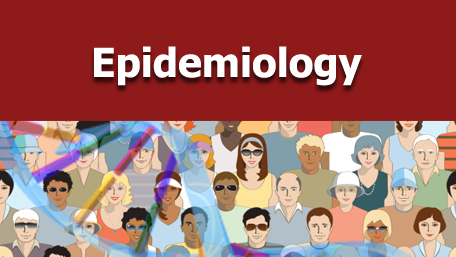Lancet Diabetes Endocrinol. 2016 Jul 26. pii: S2213-8587(16)30095-X. doi: 10.1016/S2213-8587(16)30095-X. [Epub ahead of print]
Monogenic autoimmune diseases of the endocrine system.
Abstract
Copyright © 2016 Elsevier Ltd. All rights reserved.
Public Health Genomics Knowledge Base (v1.2)

August 4-11, 2016
DIABETES

Last Updated: Aug 05, 2016
- Monogenic autoimmune diseases of the endocrine system.
Johnson Matthew B, et al. The lancet. Diabetes & endocrinology 2016 7 - Short repeats in the heme oxygenase 1 gene promoter is associated with increased levels of inflammation, ferritin and higher risk of type-2 diabetes mellitus.
Andrews Mónica, et al. Journal of trace elements in medicine and biology : organ of the Society for Minerals and Trace Elements (GMS) 2016 9 25-30 - A Qualitative Study of Anticipated Decision Making around Type 2 Diabetes Genetic Testing: the Role of Scientifically Concordant and Discordant Expectations.
Carmichael Alicia G et al. Journal of genetic counseling 2016 Jul - The Emerging Role of Epigenetics in Inflammation and Immunometabolism.
Raghuraman Sukanya et al. Trends in endocrinology and metabolism: TEM 2016 Jul - Associations of polymorphisms in TXNIP and gene-environment interactions with the risk of coronary artery disease in a Chinese Han population.
Wang Xue-Bin, et al. Journal of cellular and molecular medicine 2016 7 - CCL2, CCL5, IL4 and IL15 Gene Polymorphisms in Women with Gestational Diabetes Mellitus.
Teler J, et al. Hormone and metabolic research = Hormon- und Stoffwechselforschung = Hormones et metabolisme 2016 7 - Polymorphisms in TCF7L2 gene are associated with gestational diabetes mellitus in Chinese Han population.
Ye Dan, et al. Scientific reports 2016 0 30686 - [Assessment of efficiency of the personalized therapy of patients with obesity and diabetes mellitus 2 types appointed on the basis of studying rs5219 polymorphism of KCNJ11 gene].
Lapik I A, et al. Voprosy pitaniia 2016 0 (2) 61-6 - Association of kidney structure-related gene variants with type 2 diabetes-attributed end-stage kidney disease in African Americans.
Guan Meijian, et al. Human genetics 2016 7 - Genetic variants in the receptor for advanced glycation end products (RAGE) gene were associated with circulating soluble RAGE level but not with renal function among Asians with type 2 diabetes: a genome-wide association study.
Lim Su Chi, et al. Nephrology, dialysis, transplantation : official publication of the European Dialysis and Transplant Association - European Renal Association 2016 7 - Genomics, Telomere Length, Epigenetics, and Metabolomics in the Nurses' Health Studies.
Townsend Mary K, et al. American journal of public health 2016 7 e1-e6 - The association between fructosamine-3 kinase 900C/G polymorphism, transferrin polymorphism and human herpesvirus-8 infection in diabetics living in South Kivu.
Cikomola Justin C, et al. Acta tropica 2016 7 14-19 - The rs12917707 polymorphism at the UMOD locus and glomerular filtration rate in individuals with type 2 diabetes: evidence of heterogeneity across two different European populations.
Prudente Sabrina, et al. Nephrology, dialysis, transplantation : official publication of the European Dialysis and Transplant Association - European Renal Association 2016 7 - Type 2 Diabetes: All in the Family?
- An Examination of Family, Healthcare Professionals, and Peer Advice on Physical Activity Behaviors among Adolescents at High Risk for Type 2 Diabetes.
Amuta Ann O et al. Health communication 2016 Jul 1-7



- Human (9242)
- Pathogen (0)

- Human (101)
- Pathogen (0)


- Huamn (29)
- Pathogen (0)





















.png)












No hay comentarios:
Publicar un comentario